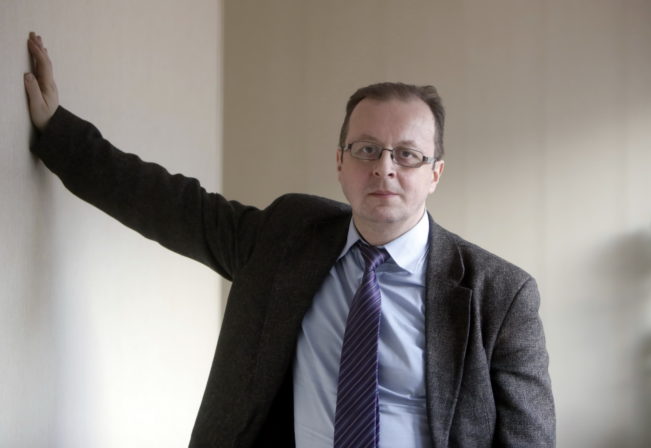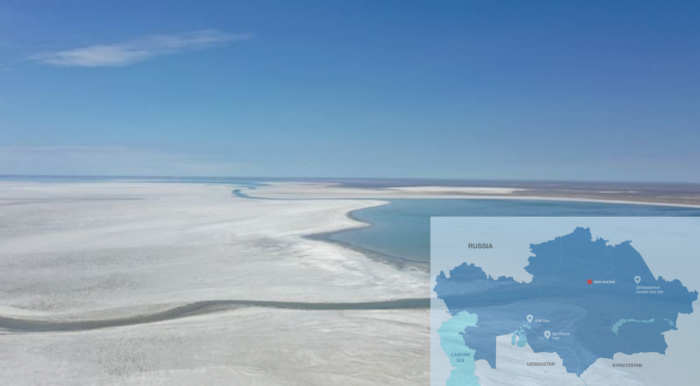When Kazakhstan’s Head of State, President Kassym-Jomart Tokayev addressed online the United Nations’ General Assembly from the city of Nur-Sultan deep in the Eurasian steppes, his choice of subject might have appeared Quixotic to his listeners in the world’s most futuristic city on the other side of the Atlantic. The President did not speak about geopolitics, he did not try to determine which ideology is the most progressive, and he did not call out any countries for being “threats to world order.” Humanity has already created enough real threats to itself, so any talk of armed confrontation is indeed irresponsible.
Instead, President Tokayev talked about the means of combating the Covid-19 pandemic, the dangers of climate change and the need to preserve our planet’s biodiversity. President Tokayev even proposed the creation of a new specialized agency, tentatively named the International Agency for Biological Safety, to be charged with the preservation of rare species and other urgent measures needed for the preservation of biodiversity on our planet.
For urban dwellers in affluent parts of the globe, climate change and the extinction of rare species is an abstraction. But not for the population of Kazakhstan, where industrial development in the twentieth century came with a huge price tag for the ecology and where the native population traditionally sees its life as inseparable from nature.

Dmitry Babich
President Tokayev named two crisis areas of climate concern where biodiversity was in particular danger – the Aral Sea and the Semipalatinsk nuclear test site.
Since the tragedy of Semipalatinsk has already been described in our recent articles as difficult legacy from the Soviet program for the development of nuclear arms, the Aral Seas story is less known and was the focus of the President’s speech at the 75th session of the UN’s General Assembly.
Kazakhstan’s difficult fight for at least the partial restoration of the biodiversity of the Aral sea started immediately after the country gained its independence in 1991. It was not a caprice, but a matter of great urgency: this lake, until recently the fourth largest lake in the world (26,000 square miles), started shrinking in the 1960s because of Soviet irrigation projects and by 2007 it shrank to just 10 percent of its original size. Salination became a huge problem in the remaining part of the sea, leading to extinction of many local species of fish and other animals.
Can the Americans and Canadians imagine their countries without the Great Lakes, or can Africa stay the Africa of our fantasies without lake Victoria? In a lot of ways, the Aral sea was the Eurasian analogue of the lake Victoria especially when taking into account its biodiversity: even now a part of the Aral Sea is inhabited by flamingos; and until recently the sea had one of the world’s most diverse set of fish species, with sturgeons, pikes and trouts providing tons of seafood every day. After a period of “near death” of about a dozen years, the Aral sea is again providing Kazakhstanis with fish – to a much more modest amount of 400 tons a year, but every ton is an achievement here.
How did this become possible? The First President of independent Kazakhstan and the Leader of the Nation Nursultan Nazarbayev took the problem of the Aral Sea very close to heart, but he also understood that the catastrophic ecological degradation can be at least partially reversed only by a joint international effort. Kazakhstan shares the Aral sea with neighboring Uzbekistan, but the effects of the disappearance of the Aral sea with the subsequent salination are felt far beyond Central Asia’s borders. “The wind raises from the dried up seabed clouds of salty dust with lots of hazardous elements in it, dangerous for both humans and animals,” says Zinovyi Novitsky, a researcher of the Russian Academy of Sciences and an expert of the Compliance Committee of the UN Convention on the Use of Trans-Boundary Watercourses. “Scientists have proven that this dust can be carried to a distance of up to one thousand of kilometers away from what used to be Aral sea. Later on these elements can fall back to earth with salty rains or even inside snow flakes.”
In 1993 thanks to the efforts of President Nazarbayev the International Fund for Saving the Aral Sea (IFAS) was established. Between 1995 and 2010 the Fund fulfilled two Aral Sea Basin Programmes: ASBP-1 and ASBP-2. The results were tremendous: thanks to the works on the bed of the Syr-Darya river the deeper and better preserved northern part of the Aral Sea raised its water level from 39.9 meters to 42 meters. Humans returned to some of the abandoned former “seaport” towns, thanks to the renewed supply of potable water, as the old sources of drinking water had to be abandoned because of increased salination. More than 200 kilometers of water mains were built to restore the sea’s supply of water.
Now the ASBP-3 project is in the works, with breath-taking perspectives for international cooperation in rehabilitating the sea. The Aral sea’s disaster area was visited in 2010 by the then UN Secretary General Ban Ki-moon, who gave his full support to the efforts of IFAS. The new UN’s Secretary General, Antonio Guterres, continues to pay attention to the problem, giving his blessing to several international programs on the Aral Sea.
So, when President Tokayev talked about biodiversity and fighting the consequences of climate change addressing online his audience at the UN headquarters, for him this was not rhetoric, but an issue of vital importance. As Kazakhstan’s former foreign minister, Kassym-Jomart Tokayev knows better than anyone else how beneficial international support can be for the country’s ecological projects.
The northern part of the Aral sea, which belongs to Kazakhstan and which is now separated from the southern part by a dam, was saved thanks to the Syr Darya Control & Northern Area Sea (NAS) project. NAS’s initial funds consisted of $86 million, $65 million of which was a loan from the World Bank. This loan became possible only thanks to the efforts of the international community, including the UN.
This success story shows that the world is starting to understand that the ecological disasters, like the one that befell the Aral sea, are not just some distant country’s problem. Some of them have become what Kassym-Jomart Tokayev described in his speech as “threat multipliers,” dangerous for the global community at large.
In his famous novel “Snowstorm Stop,” written in the 1970s, Chingiz Aitmatov, the famous writer who was called “the voice of Central Asia in the Soviet Union” thus describes the area near a new nuclear testing site in Central Asia:
“Once upon a time this land was worth fighting for. There was more rainfall in spring and autumn, and there was enough grass for the cattle. But the old men say – climate changed at some point, rains became more rare, and even the desert wells dried up… Settler nations moved away and perished somewhere on their way to Volga. And only the natives of this land – the Kazakh nomads – did not leave the turf of the ancestors and survived on the precious little water they could get from their newly dug wells…”
It looks more and more certain that Aitmatov’s gift for prophecy, noted by many philologists, was well deserved.
The author is a Moscow-based journalist with 30 years of experience of covering global politics, a frequent guest on BBC, Al Jazeera and RT.

